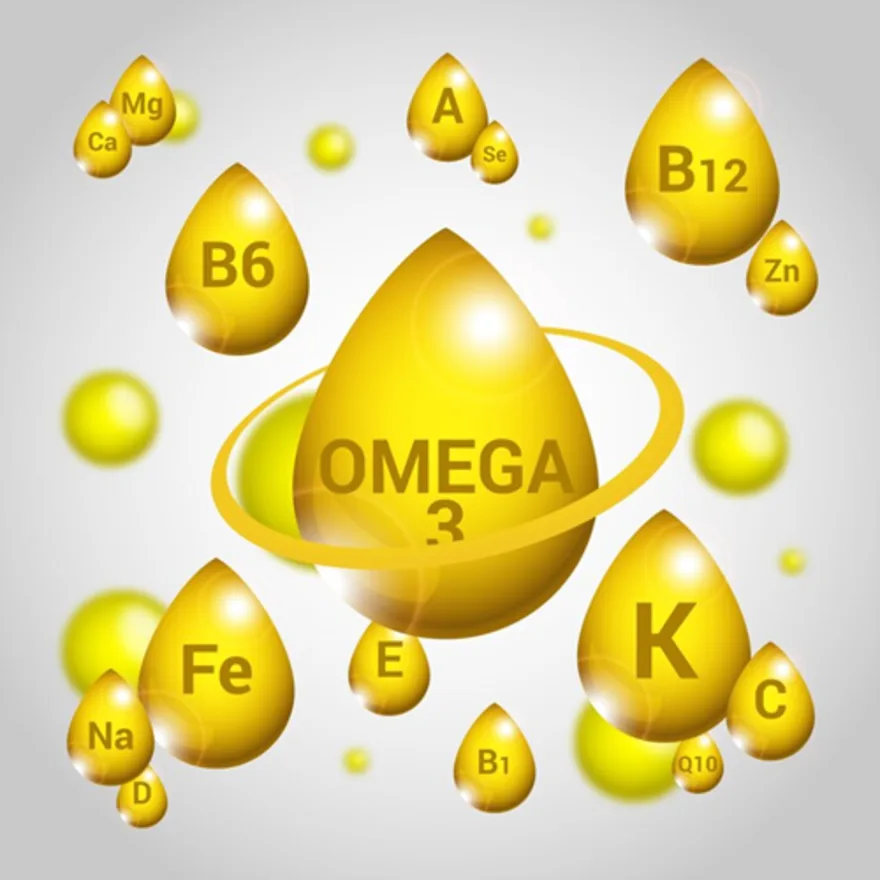Preventive Healthcare
Thiamine (Vitamin B1): Food Sources, Deficiency & Benefits
9666 Views
0

What is Vitamin B1?
Vitamin B1, also knowns as thiamine, is an essential nutrient. Your body needs it for converting carbohydrates into energy, growth, development and proper nerve and cellular function.
Vitamin B1 is a water-soluble vitamin, meaning it dissolves in water unlike vitamins A, D, E and K, which are fat-soluble and dissolve in fat. Water-soluble vitamins are carried through your bloodstream and used by your body for various functions. These are not stored in your body, which is why you need to consume these regularly to prevent a deficiency.
Read on to learn more about vitamin B1, the symptoms of B1 deficiency, vitamin B1 benefits and the foods that are rich sources of this vital nutrient.
What are the benefits of vitamin B1?
Vitamin B1 benefits include:
- Energy production: Your body needs vitamin B1 to make adenosine triphosphate (ATP). It is a molecule that helps transport energy within your cells. Vitamin B1 also helps convert carbohydrates into glucose. It provides energy for your body to function well. This essential nutrient also helps in the breakdown of proteins and fats.
- Reduces the risk of heart disease: Vitamin B1 is essential for the healthy functioning of your heart. Its deficiency can lead to congestive heart failure. It is a condition where your heart can not pump enough blood for your body.
- Fights depression: Vitamin B1 is known to stabilize moods and ease the symptoms of depression faster. A vitamin B1 deficiency can cause low mood.
- Improves insulin levels: Vitamin B1 improves high blood glucose and insulin levels. It reduces the severity of symptoms related to diabetes. This nutrient also helps reduce high blood pressure and cardiovascular complications in people with diabetes.
- Improves memory: Vitamin B1 helps improve concentration and memory thanks to its positive impact on brain function.
- Good for digestive health: Vitamin B1 helps regulate hydrochloric acid, which is necessary for the proper functioning of the digestive system.
- Improves immunity: Thiamine or vitamin B1 strengthens your immune system and helps you fight stress. It is also called the antistress vitamin.
What are the symptoms of vitamin B1 deficiency?
The symptoms of vitamin B1 deficiency are often similar to those of other health conditions and therefore tend to get ignored. Please consult your doctor if you experience the following signs and symptoms:
- Loss of appetite: Losing your appetite is one of the first symptoms of vitamin B1 deficiency. It can cause weight loss and a deficiency in other nutrients, too, as you eat less than normal.
- Fatigue: Vitamin B1 converts your food into energy. When the body does not get enough vitamin B1, it hampers your body's ability to produce energy, which leads to tiredness.
- Mood changes: Lack of vitamin B1 leads to changes in mood, causing irritability. It is often accompanied by tiredness and is one of the earlier symptoms of thiamine deficiency.
- Nerve damage: Severe vitamin B1 deficiency or beriberi can damage the nerves, causing neuropathy. Other symptoms of beriberi include a tingling sensation in the limbs, loss of sensitivity in the fingers and feet, rapid heartbeat, muscle weakness, confusion and lower body paralysis.
- Nausea and vomiting: Nausea, besides digestive problems, is a symptom of a vitamin B1 deficiency-related condition known as Wernicke encephalopathy. These are also symptoms of mild thiamine deficiency.
- Blurry vision: As vitamin B1 plays a vital role in nerve health, the lack of this nutrient can affect your optic nerve leading to blurry vision and eventually, loss of vision.
- Delirium: A deficiency of vitamin B1 can also cause confusion, the inability to think clearly and a lack of awareness of your surroundings. Severe vitamin B1 deficiency can lead to Wernicke-Korsakoff syndrome (WKS). Its symptoms include confusion, hallucinations, delirium and loss of memory.
What causes vitamin B1 deficiency?
The causes of vitamin B1 deficiency are:
- Old age
- AIDS
- High blood glucose levels
- Eating disorders, like bulimia nervosa and anorexia nervosa
- Weight loss surgery
- Dialysis
- Excessive use of diuretics
- Health conditions that hamper your body's ability to absorb vitamins
- Chronic vomiting
- Diets that include polished and processed food grains that lack vitamin B1
What are the sources of vitamin B1?
Food sources containing vitamin B1 are:
- Whole grain cereals
- Legumes (beans)
- Brown rice
- Groundnuts
- Lentils
- Wheat germ
- Green peas
- Sunflower seeds
- Sweet potatoes
- Oranges
- Yoghurt
- Cheese
- Eggs
- Poultry
- Tuna
- Salmon
- Pork
- Fish
Treatment of vitamin B1 deficiency
The best way to prevent a vitamin B1 deficiency is by including food sources in your daily diet. It helps your body maintain sufficient levels of Vitamin B1.
The recommended dietary allowance of vitamin B1 is:
- Adult women: 1.1 mg
- Adult men: 1.2 mg
In addition to diet, your doctor may suggest taking a vitamin B1 supplement, a multivitamin supplement, or a vitamin B-complex to meet your daily thiamine requirements.
If you have a severe vitamin B1 deficiency, your doctor may prescribe a high-dose supplement orally, through an injection, or IV. Your doctor will monitor these doses.
There are not many diagnostic tests to detect vitamin B1 deficiency. Therefore, to diagnose your condition, your doctor will advise a blood test that measures the activity of the transketolase enzyme. This enzyme requires vitamin B1 for its activity which would otherwise be affected by a deficiency.
To sum up
If you experience fatigue, mood changes, nausea, digestive issues or tingling sensation in your hands and feet, please consult your doctor. First, they will conduct a physical exam to observe behavioural changes, then recommend a blood test to detect vitamin B1 deficiency.
A healthy diet that contains sufficient food sources of vitamin B1 will help prevent its deficiency. Please check out the Vitamin B1 blood test offered by Metropolis India. Metropolis India is the country's leading pathological laboratory that is trusted by doctors and hospitals for its superior techniques and accurate results.













1701259759.webp)















 WhatsApp
WhatsApp